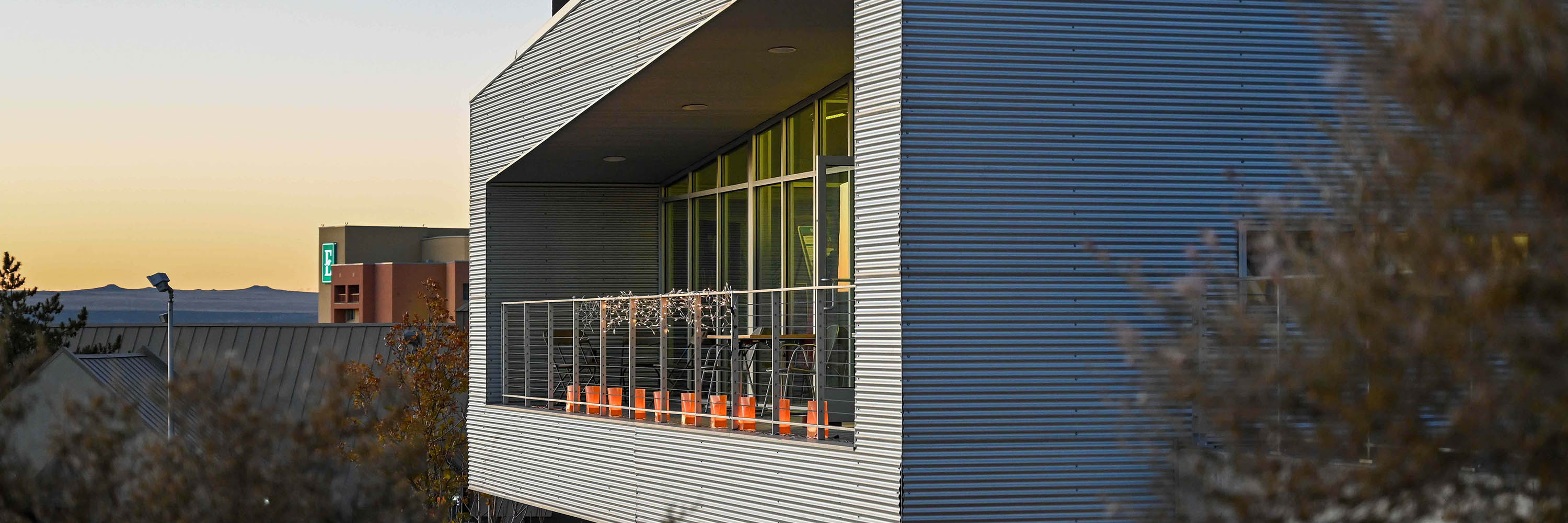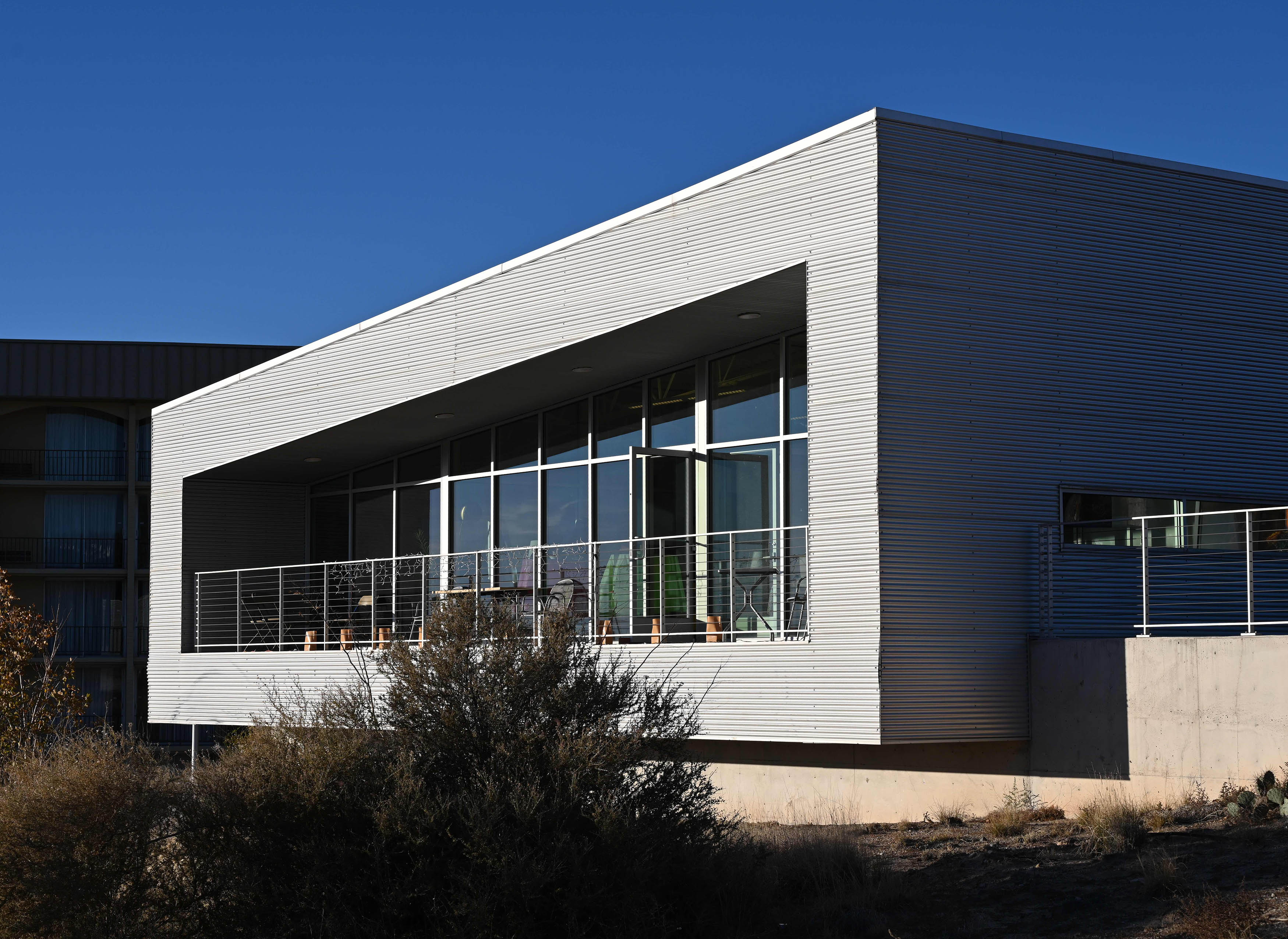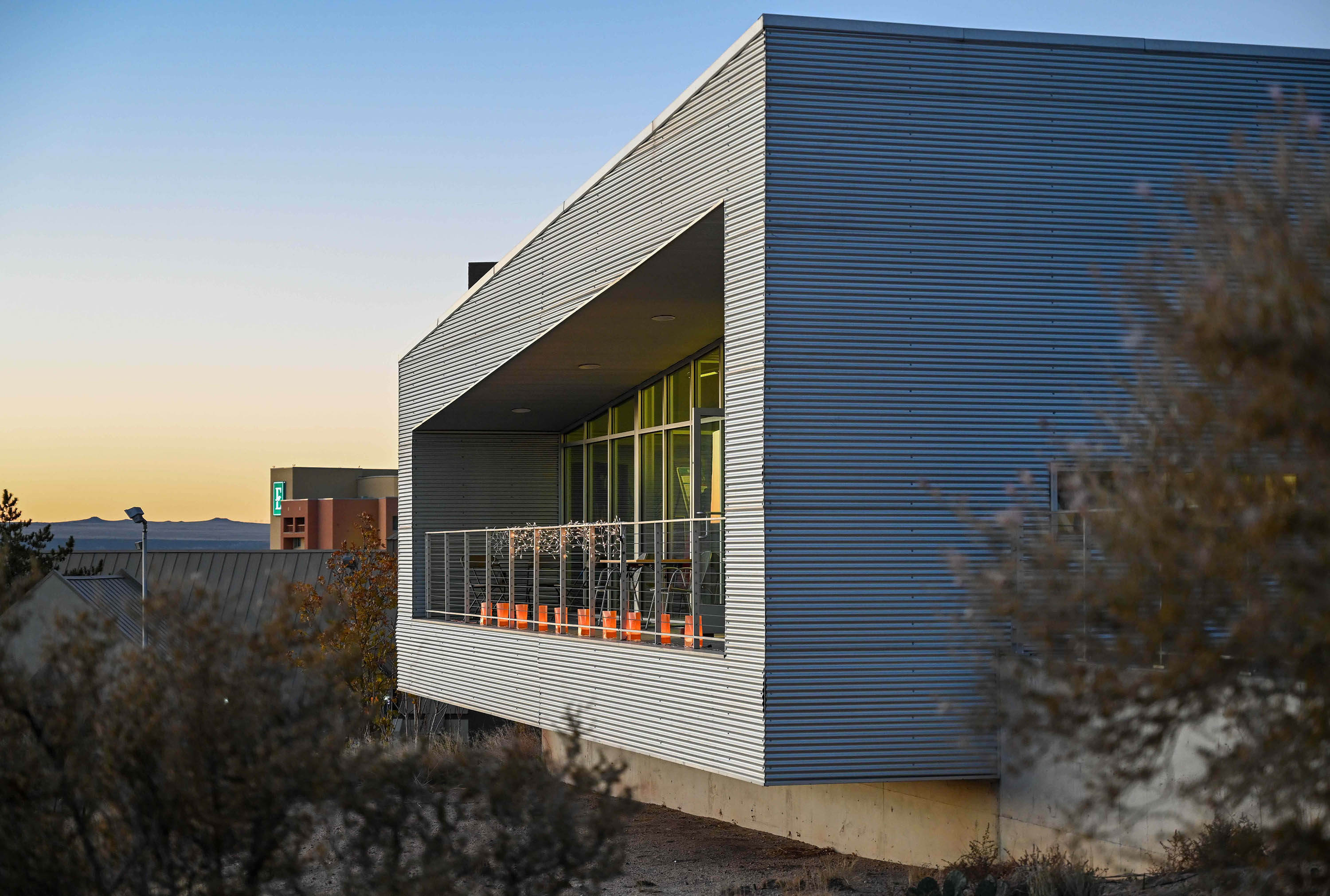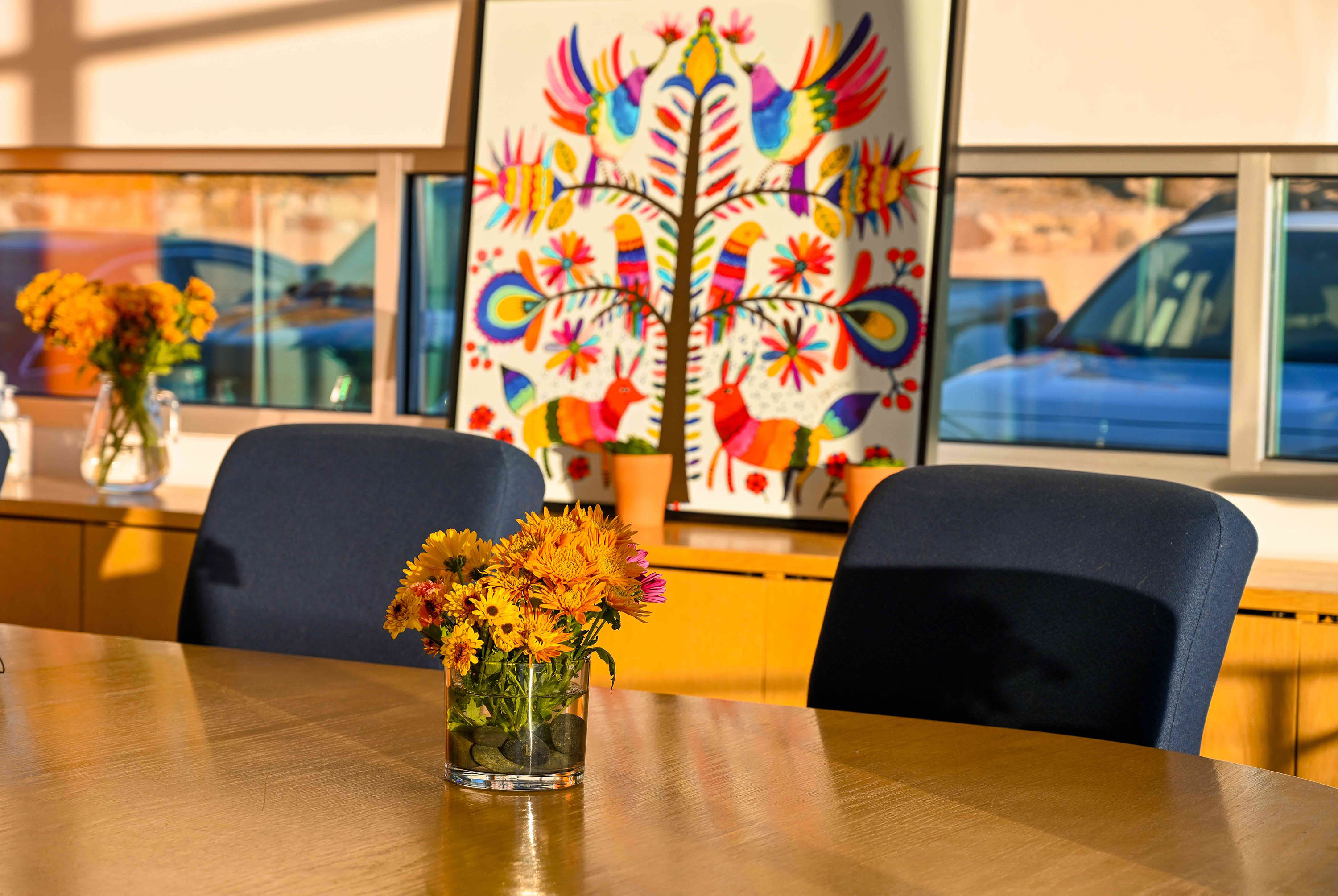The Transdisciplinary Research, Equity and Engagement Center (TREE Center) at The University of New Mexico has a new home.
After a decade of work, the TREE Center has moved from being a virtual center into a dedicated physical space at 1011 Las Lomas Rd NE in the Medical Arts complex, a half mile from UNM’s Central and Health Sciences campuses.
"This building is a home away from home for many of our intersectional scholars of color and community partners,” said executive director Lisa Cacari Stone, PhD, professor in the UNM College of Population Health. “It is a safe and vibrant space for building our knowledge together for transformational systems and policy changes that advance racial justice and health equity."
The TREE Center is funded by the National Institute of Minority Health and Health Equity, branching across 13 disciplines from the social and health sciences. It supports 19 pilot projects, two major intervention studies and is comprised of 90% intersectional scholars of color.
The Center has more than 200 partners statewide, including rural areas of northern New Mexico and border colonias and extending to the Navajo Nation and pueblos, as well as urban Indian and African American, immigrant and Asian American community-based organizations.
To honor the vision of advancing knowledge for social change and collective healing, the faculty, staff and students constructed a labyrinth on Nov. 17 with a ceremony and open house that drew nearly 100 partners to celebrate a sacred and safe space.
The architect-designed 4,000-square-foot building, originally was occupied by the Law Offices of Scott & Kienzle, P.A. It includes ample opportunity for team science and participatory-based research, with two meeting rooms and a library/resource gathering space.
The building serves as a hub for team science with communities and health equity innovation, including the TREE Center, Equity in Policy Institute, Instituto Intercultural de Medicina Tradicional y Comunitaria, Wide Engagement for Assessing Vaccine Equity in New Mexico, and related culturally centered mentoring, training and community-engaged programs that bridge science with culture for the advancement of racial justice, healing and health equity.



